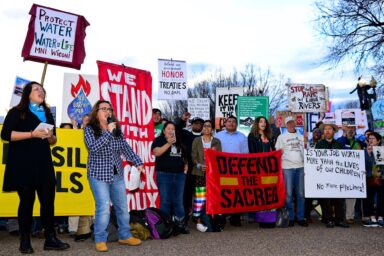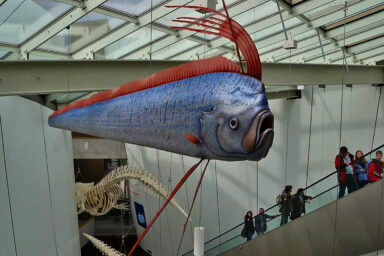PICKS are stories from many sources, selected by our editors or recommended by our readers because they are important, surprising, troubling, enlightening, inspiring, or amusing. They appear on our site and in our daily newsletter. Please send suggested articles, videos, podcasts, etc. to picks@whowhatwhy.org.
|
Listen To This Story
|
Deepfakes on Trial: US Judicial Panel Debates New AI Evidence Rules (Maria)
The author writes, “On Friday, a federal judicial panel convened in Washington, DC, to discuss the challenges of policing AI-generated evidence in court trials, according to a Reuters report. The US Judicial Conference’s Advisory Committee on Evidence Rules, an eight-member panel responsible for drafting evidence-related amendments to the Federal Rules of Evidence, heard from computer scientists and academics about the potential risks of AI being used to manipulate images and videos or create deepfakes that could disrupt a trial.”
How Trump Has Become Angrier and More Isolated on Truth Social (Gerry)
From The Washington Post: “For years, Donald Trump was among Twitter’s loudest and most inescapable voices: a brash, bomb-throwing businessman turned president who could capture the global news cycle with a single tweet. On Truth Social, he is serving up an even more extreme version of his online self. His following is diminished, but his posting has accelerated. He has traded combative tweets for even more belligerent screeds. Diatribes against his perceived enemies have drawn gag orders from judges in multiple cases. His media diet has become almost exclusively right-wing. And above all, he persists in spreading lies about his 2020 election loss, deep into his campaign for another term.”
US Bans Noncompete Agreements for Nearly All Jobs (DonkeyHotey)
The author writes, “The Federal Trade Commission narrowly voted Tuesday to ban nearly all noncompetes, employment agreements that typically prevent workers from joining competing businesses or launching ones of their own. The FTC received more than 26,000 public comments in the months leading up to the vote. Chair Lina Khan referenced on Tuesday some of the stories she had heard from workers. ‘We heard from employees who, because of noncompetes, were stuck in abusive workplaces,’ she said.”
FAA Probes Union Claims Boeing Retaliated Against Two Engineers in 2022 (Reader Steve)
The author writes, “The Federal Aviation Administration said Tuesday it is investigating a union’s claims that Boeing retaliated against two employees who in 2022 insisted the planemaker re-evaluate prior engineering work on 777 and 787 jets. The Society of Professional Engineering Employees in Aerospace (SPEEA) said the two unidentified engineers were representatives of the FAA, which delegates some of its oversight authority and certification process to Boeing workers.”
McKinsey Under Criminal Investigation Over Opioid-Related Consulting (Reader Andrew)
The author writes, “The Justice Department is conducting a criminal investigation into consulting firm McKinsey related to its past role in advising some of the nation’s largest opioid manufacturers on how to boost sales. Federal prosecutors are also probing whether McKinsey or any of its employees may have obstructed justice in relation to records of its consulting services for opioid producers, according to people familiar with the investigation, which has been ongoing for several years.”
Bruises and Broken Ribs — Palestinian Deaths in Israeli Prisons (Mili)
From the BBC: “Conditions deteriorated for Palestinian prisoners in Israel after 7 October last year, when Hamas mounted its deadly assault on Israeli communities near the Gaza Strip, according to the West Bank-based Palestinian Authority’s (PA) Commission of Detainees Affairs. Thirteen Palestinian prisoners have since died in Israeli prisons, ‘the majority of them as a result of beating or denial of medication,’ the commission’s head, Qadoura Fares, told the BBC.”
Artificial Intelligence Can Predict Political Beliefs From Expressionless Faces (Sean)
From PsyPost: “Scientists have demonstrated that facial recognition technology can predict a person’s political orientation with a surprising level of accuracy. Their research, published in the journal American Psychologist, shows that even neutral facial expressions can hold clues to someone’s political beliefs. This finding poses significant privacy concerns, especially since facial recognition can operate without an individual’s consent.”
Decades After a US Butterfly Species Vanished, a Close Relative Is Released To Fill Gap (Laura)
The authors write, “More than 80 years ago, a beautiful butterfly called Xerces Blue that once fluttered among San Francisco’s coastal dunes went extinct as stately homes, museums and parks ate up its habitat, marking the first butterfly species in the United States to disappear due to human development. But thanks to years of research and modern technology a close relative of the shimmery iridescent butterfly species has been reintroduced to the dunes in Presidio National Park in San Francisco. Dozens of Silvery Blue butterflies — the closest living relatives of the Xerces Blue — were released in the restored habitat [this month].”




